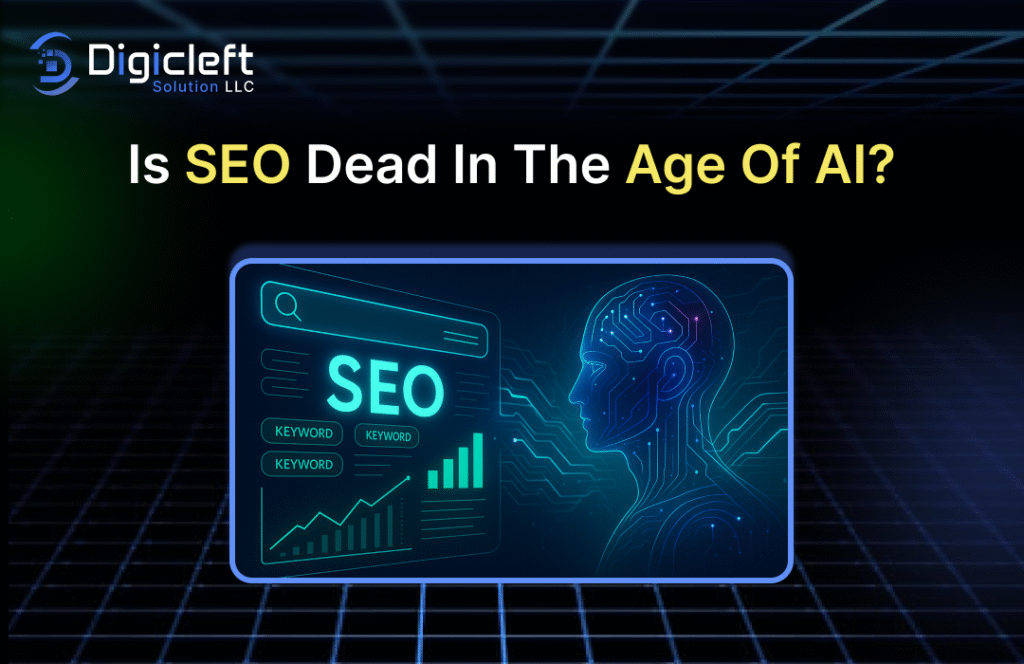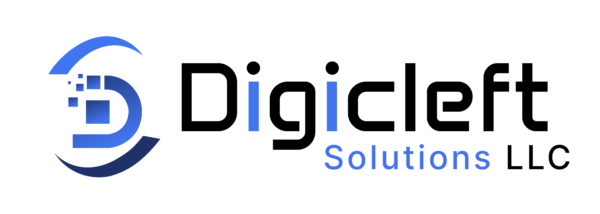
Spoiler alert: No, SEO isn’t dead. But it’s definitely not the same old game anymore.
Artificial intelligence (AI) is reshaping nearly everything—from how we write to how we search online. With tools like ChatGPT, Google’s Search Generative Experience (SGE), and AI assistants popping up everywhere, it’s natural to ask:
Is SEO dead in the age of AI?
In this article, we’ll explore what’s happening, how AI changes the method of SEO, and what it means for businesses trying to stay visible online.
How AI Is Changing the Way We Search
Before we dive into SEO’s future, let’s take a quick look at how AI is transforming search behavior.
In the past, users typed specific queries into Google, clicked links, and browsed websites. Now, AI can answer those queries directly—summarizing results, pulling answers from various sources, and even removing the need for clicks altogether.
Key AI shifts affecting SEO:
- Fewer clicks on traditional search results due to AI summaries
- Voice search and conversational queries are increasing
- Google SGE (Search Generative Experience) places AI-generated answers above organic results
- Users expect fast, direct, and personalized responses
So, is SEO dead in AI-driven search? Not quite—but it’s getting smarter, and so should we.
What Does “SEO is Dead in AI” Really Mean?
Let’s be clear: saying “SEO is dead in the age of AI” is an oversimplification. What’s dying is the old approach to SEO—stuffing keywords, chasing backlinks, and writing thin content.
Outdated SEO methods that no longer work:
- Keyword stuffing without context
- Writing short, low-value articles for quick rankings
- Relying on exact-match domains
- Spammy backlink strategies
Modern SEO is about delivering real value to users, aligned with how AI understands search intent.
Why SEO Still Matters—Now More Than Ever
Even in an AI-powered world, people still search. They still use Google, visit websites, read blogs, and make decisions based on online content. The difference now is how they find that content.
Here’s why SEO is still alive and kicking:
- Search engines still rely on optimized content to deliver answers
- AI tools scrape websites to learn and generate results
- Google still uses content relevance, authority, and trust to rank sites
- People trust real brands and content creators over AI-generated blurbs
If anything, AI is raising the bar. To stay competitive, you need better content, cleaner site structure, and deeper topical authority.
How AI Changes the Method of SEO (and What You Should Do)
SEO in the age of AI is about user intent, structured data, and meaningful content. Here’s how to adapt your strategy:
1. Focus on Search Intent Over Keywords
AI is great at understanding context. Instead of chasing individual keywords, aim to cover entire topics in depth. Answer related questions, explore subtopics, and create a web of content that positions your site as an authority.
2. Structure Your Content for AI and Humans
Use clear headings (H2s, H3s), bulleted lists, FAQs, and schema markup. Structured content helps AI and search engines understand and present your content effectively in rich snippets and AI summaries.
3. Embrace Topical Authority
Rather than writing isolated blog posts, build content clusters. For example, if you’re in IT services, create multiple pieces around:
- Cloud migration
- Cybersecurity best practices
- AI in IT operations
Link them together to signal depth and expertise.
4. Optimize for Featured Snippets & SGE
AI loves clean, concise answers. Include short, clear summaries in your content. Use the “People Also Ask” sections on Google to inform what users want and format your content accordingly.
5. Improve Your Technical SEO
AI doesn’t replace good site architecture. Your site still needs to be fast, mobile-friendly, secure (HTTPS), and easy to crawl.
SEO vs. AI: Working Together, Not Competing
AI is not the enemy of SEO—it’s a tool that’s changing the landscape. Smart marketers are using AI to:
- Generate topic ideas and outlines
- Analyze competitors
- Identify keyword gaps
- Automate content audits
But at the end of the day, AI can’t replace your expertise, brand voice, or customer experience. Those are the things that win trust and rankings.
FAQs: Is SEO Really Dead in the Age of AI?
1. Is SEO dead in 2025?
No, SEO isn’t dead—it’s evolving. Search engines still depend on well-structured, relevant content to deliver answers, even with AI enhancements.
2. How does AI impact SEO?
AI changes the method of SEO by prioritizing search intent, content quality, and structure over traditional keyword-based tactics.
3. Can AI replace SEO specialists?
AI can assist with tasks, but it can’t replace the strategic thinking, branding, and human insight that SEO professionals provide.
4. Is traditional keyword research still useful?
Yes, but it’s shifting. Focus less on individual keywords and more on topics and intent-driven content.
5. Will AI-generated content rank on Google?
Maybe—but only if it’s accurate, original, and useful. Google prioritizes helpful content, regardless of who or what created it.
Final Thoughts: SEO Isn’t Dead—It’s Just Growing Up
If you’re worried about SEO being dead in the age of AI, here’s the truth:
SEO isn’t dying—it’s evolving.
Businesses that adapt, create meaningful content, and use AI wisely will thrive in this new digital landscape. Those clinging to old tactics will fall behind.
So don’t give up on SEO—level it up.
🟢 Need help updating your SEO strategy for the AI era?
Let’s talk! We’ll help you future-proof your website, boost your visibility, and reach the right audience.


